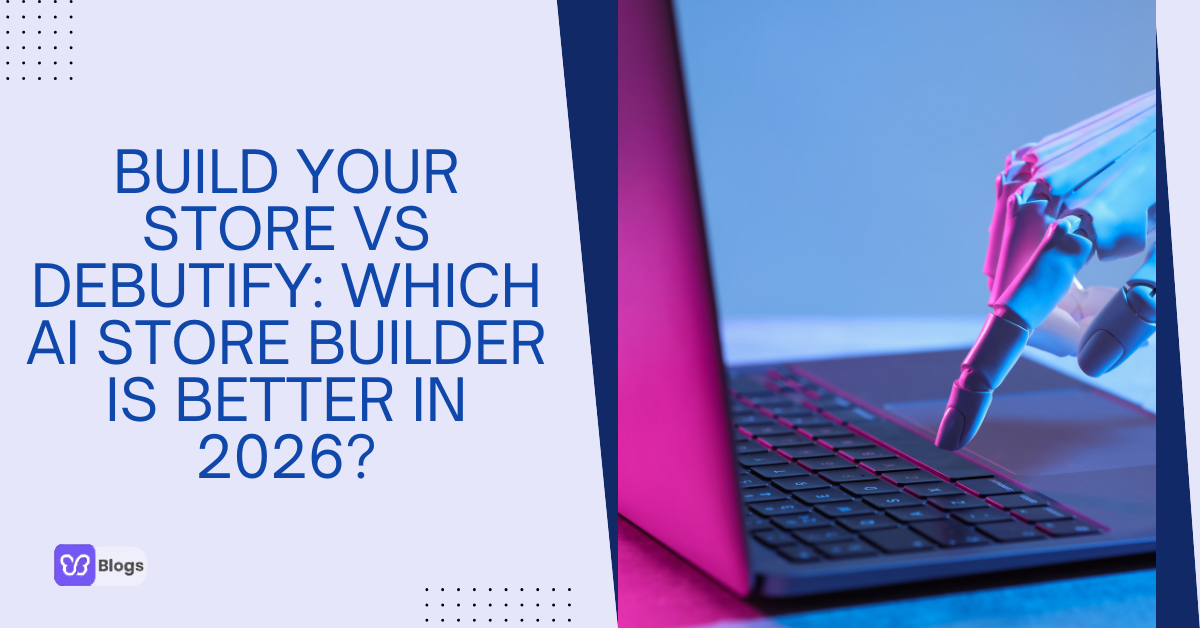Thanks to technology, with the advent of ecommerce fraud prevention measures, you can run your business anywhere, connect with your customers all over the world, and make money through your online business.
However, this convenience also comes with a risk. In the evolving digital world, fraudsters are constantly devising new ways to engage in unethical activities online."
And that means no website is safe... but that doesn't mean you can't do anything about it! Because you can protect your business if you...
- Secure your website
- Protect your digital assets
- Require your customers to have strong passwords
- Require CVV and CVC
- Conduct website security audits
- Limit purchases
- Use eCommerce fraud prevention tools
And there's more...
- What are the types of eCommerce fraud?
- Why do you need to protect your business?
- What are some of the ways you can take to protect your business?
And when you finish this blog, you can implement these tips and secure your business. So, let's start!
What are the common types of eCommerce fraud?

1. Identity theft
Fraudsters will steal your customers' information stored in your database. It can be their names, email addresses, payment information, locations, etc.
Another is when they pretend to be legitimate customers and make fraudulent purchases.
2. Ecommerce payment fraud
Fraudsters can exploit payment details and conduct unauthorized transactions by stealing payment information, leading to what is commonly known as credit card fraud or online payment fraud.
This underscores the importance of robust ecommerce credit card fraud prevention measures to safeguard against such illicit activities
Fraudsters can exploit payment details to conduct unauthorized transactions when they gain access to payment information. This malicious activity is commonly known as credit card fraud or online payment fraud
3. Account takeover
Fraudsters will steal private information and take control of the accounts or any asset. For example, when you click a malicious link, they can steal your social media accounts.
They can also steal payment information. They will use stolen credit cards to make transactions.
And before we hop on to the tips you need to implement, let's talk about...
Why do you need to protect your business?
1. Secure customer data
When you protect your business, it also means you're protecting your customers. And because you're handling the customer database, it's your job to protect it.
Having a secure business will also help you...
2. Boost credibility
You can boost your credibility if the customers know you protect their information seriously. Of course, they'll provide personal information and payment details.
Your business must be credible before they purchase from you. Besides that, securing your business will also...
3. Avoid losing profits
Hackers will commit fraudulent activities using your accounts, and that will make you lose profits.
For example, your social media account was hacked. That means you can't promote your business using that platform. Or if there's a data leak, it will be hard for you to get the trust of your customers back.
That can result in a loss of profit. So, to avoid that, here are...
7 eCommerce fraud prevention tips you can implement

The first thing you need to do is...
1. Secure your website
One of the basic steps to prevent eCommerce fraud activities is to secure your website. As they say, prevention is better than cure.
So, make sure to:
- Choose a secure eCommerce platform to sell.
- Have an SSL certificate to get extra security.
- Don't integrate unreliable plugins into your eCommerce store.
- Work with anti-fraud experts to secure payment methods.
- Be careful of downloading malware.
These are some of the things you can do to secure your website. If you do these, you can avoid fraudulent tactics that may come in these forms.
Another way to protect your eCommerce store is...
2. Protect your digital assets
Digital assets play a significant role in your business. And sadly, some fraudsters are also stealing them from your website.
They can use these in fraud activities involving your digital assets. It will result in copyright infringement, data and intellectual property loss, identity theft, and more.
So, it's essential to protect them. You can do so by disabling the right-click on your website, having terms of use page, and watermarking your digital assets.
The next one will help your customers...
3. Require your customers to have strong passwords
If customers are required to create an account for online purchases, they should have strong passwords.
This way, you are also protecting them from fraudulent transactions using their identities or accounts. It will also prevent fraudulent credit card transactions using their details.
That's why your customers must have strong passwords. For extra ecommerce fraud protection, you can also send an OTP pin or a login link.
Speaking of which, it's also critical to...
4. Require CVV or CVC upon purchase
If your online store accepts credit card payments, this is a must.
Some customers save their payment details on their browsers, and some bank details might be exposed when saved on browsers.
So, you need to require CVV (Card Verification Value) and/or CVC (Card Verification Code) to ensure they're the ones making the purchase.
This will prevent fraudulent credit card transactions using your customers' personal and payment information.
But wait, there's another way to prevent this...
5. Conduct website security audits
Fraud detection and prevention are critical in securing your website. That's why you should conduct a website security audit regularly to ensure the safety and security of your business.
Here are some things you should take note of when conducting a website security check:
- Suspicious credit card transactions.
- Oversee sensitive information stored in your database.
- Check if your website is vulnerable to hackers and leaks.
- Back up your website data.
- Monitor the traffic coming to your website if there's a huge spike.
One thing that can help you is using AVS or Address Verification Service to identify fraudulent transactions.
So, what is it? It's a service offered by credit card processors and banks that detects suspicious transactions using your customers' credit cards in real time.
Conducting a website checkup will prevent credit card transactions and protect your website and customer database.
If you're looking for another way to protect your store, here's one...
6. Limit purchases
Online merchants are prone to fraudulent orders, so it's also important to set limits on purchases. Sure, getting many orders is a good thing for your business.
But sometimes, it also poses a fraud risk. High-volume orders are sometimes a red flag.
Let's say a customer ordered thousands of dollars worth of your products. It means you're receiving a huge amount from a single account.
This means there is a huge sum at risk in case there is fraud. Also, some fraudsters are using the payment information of other customers to purchase bulk orders.
And lastly, you should...
7. Use eCommerce fraud prevention tools
These tips will help you secure your business... but investing in eCommerce fraud prevention software is also essential. These will strengthen your website security even more.
You can install plugins or Add-Ons to protect your eCommerce store. You can also use third-party websites and integrate them with your eCommerce store.
An example is NoFraud Fraud Protection from the Shopify App Store.
It's an online fraud screening tool once a customer places transactions. The tool will decide if the transaction passes or fails (Pass/Fail). It will flag the failed ones, and it's up to you if you want to proceed with the transaction.
Now, it's your time to...
Protect your business and customers with these ecommerce fraud prevention tips!
The protection and security of your eCommerce store are not just limited to your business. Of course, your customers will benefit from these too.
So, ensure your business is protected to create the best and safest customer experience. If you use these ecommerce fraud prevention tips, you will save headaches in the future.
To be more proactive, here are...






